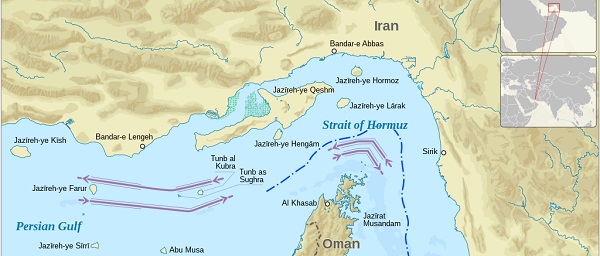Energy
Proposed ban on oil and gas promotion revives paternalistic treatment of Indigenous peoples

From the Macdonald Laurier Institute
By Karen Ogen-Toews
MP Charlie Angus needs to withdraw his offensive attempt to silence discussion and apologize.
First Nations are used to oppression. We lived for over a century with the heavy hand of the Department of Indian Affairs. We coped with bossy and even mean Indian agents. The government of Canada told us where to live, how to learn, tried to destroy our language and culture, and undermined our traditional economies.
We are sick and tired of being told what to do and think. We can do these things for ourselves. But First Nations know that paternalism is far from dead in Canada.
With his private member’s bill banning promotion of the oil and gas industry, Charlie Angus wants to bring back the oppressive hand of the state in a manner consistent with dictatorships and authoritarian states. The NDP MP for Timmins-James Bay and his party want to shut down fossil fuel production, a move that would devastate the Canadian economy and undermine the greatest — and often the only — opportunity that many First Nations have for economic renewal.
Even that is not enough. He wants to shut us up, telling us what to think and threatening us with jail and fines for not adhering to his strange, unrealistic and dangerous views of energy and environmental protection.
I am a proud spokesperson for First Nations engagement with the LNG sector. My First Nation, the Wet’suwet’en, has been on the front lines of the national debate about LNG and pipeline construction.
We have lived for years with the national media misrepresenting and distorting our community’s views on the Coast Gas Link Pipeline, a major resource project that now has significant First Nations ownership. This project has overwhelming support in my First Nation, not an impression one would get from the media coverage of the environmentalists’ interventions in community affairs.
Coastal Gas Link has already brought well-paid jobs, business opportunities and new financial resources to our people and it will do so for decades to come.
We have monitored the project closely and continue to work with the pipeline company to ensure the environment is protected and our interests respected.
At the First Nations LNG Alliance, we spent years exploring the global environmental impact of liquified natural gas. We know that Canadian LNG, produced to the highest international environmental standards, will allow Asian countries to cut back sharply on coal usage, a process with as much ecological benefit as many of the symbolic steps being taken in Canada and other nations.
It is so tragic that the Canadian discussion about energy and climate change has been reduced to trite phrases, simple concepts and now the unleashing of the authoritarian impulses that remain in the country.
I am confident that many First Nations have spent much more time exploring and debating energy production and use than most Canadian communities. Finding the balance between economic development, local environmental and cultural protection and ecological sustainability is hard work. Our communities discuss energy and infrastructure issues all the time, and we are comfortable with the decisions we have made.
A long-serving member of Parliament, Angus now wants to shut me up. He wants to fine me or put me in jail for doing my job and for presenting First Nations perspectives on fossil fuels. He wants to ban public discussion of oil and gas and has clearly bought into the idea that fossil fuels should be eliminated.
We have no idea about the future that Angus and others have in mind. Perhaps he envisages a country with homes heated by good will, transportation restricted to foot and bicycle, food transported by pack dogs, car-free roads paved only with good intentions and government budgets funded by best wishes.
Many odd and unexpected things come out of the House of Commons, but nothing in recent years is as upsetting and disgraceful as Angus’s private member’s bill, C-372.
So, I say this: Mr. Angus, you have gone much too far. Your private member’s bill is the most ridiculous, paternalistic and reprehensible example of oppression directed at First Nations people in decades. I hope you are embarrassed by your ideological over-reach, and I hope you have the decency to withdraw your bill and apologize.
You insulted Canadians and offended the hundreds of Indigenous communities and thousands of First Nations people actively engaged in the oil and gas sector.
We will not be quiet as we chart the future we want, on our terms and in our territories. Far from silencing us, you have made it abundantly clear that Indigenous peoples must speak for ourselves. Most importantly, we will fight to protect ourselves from the old-style paternalism that lurks way too close to the surface in Canadian public affairs.
Karen Ogen-Toews is the CEO of the First Nations LNG Alliance
Business
Potential For Abuse Embedded In Bill C-5

From the National Citizens Coalition
By Peter Coleman
“The Liberal government’s latest economic bill could cut red tape — or entrench central planning and ideological pet projects.”
On the final day of Parliament’s session before its September return, and with Conservative support, the Liberal government rushed through Bill C-5, ambitiously titled “One Canadian Economy: An Act to enact the Free Trade and Labour Mobility in Canada Act and the Building Canada Act.”
Beneath the lofty rhetoric, the bill aims to dismantle interprovincial trade barriers, enhance labour mobility, and streamline infrastructure projects. In principle, these are worthy goals. In a functional economy, free trade between provinces and the ability of workers to move without bureaucratic roadblocks would be standard practice. Yet, in Canada, decades of entrenched Liberal and Liberal-lite interests, along with red tape, have made such basics a pipe dream.
If Bill C-5 is indeed wielded for good, and delivers by cutting through this morass, it could unlock vast, wasted economic potential. For instance, enabling pipelines to bypass endless environmental challenges and the usual hand-out seeking gatekeepers — who often demand their cut to greenlight projects — would be a win. But here’s where optimism wanes, this bill does nothing to fix the deeper rot of Canada’s Laurentian economy: a failing system propped up by central and upper Canadian elitism and cronyism. Rather than addressing these structural flaws of non-competitiveness, Bill C-5 risks becoming a tool for the Liberal government to pick more winners and losers, funneling benefits to pet progressive projects while sidelining the needs of most Canadians, and in particular Canada’s ever-expanding missing middle-class.
Worse, the bill’s broad powers raise alarms about government overreach. Coming from a Liberal government that recently fear-mongered an “elbows up” emergency to conveniently secure an electoral advantage, this is no small concern. The lingering influence of eco-radicals like former Environment Minister Steven Guilbeault, still at the cabinet table, only heightens suspicion. Guilbeault and his allies, who cling to fantasies like eliminating gas-powered cars in a decade, could steer Bill C-5’s powers toward ideological crusades rather than pragmatic economic gains. The potential for emergency powers embedded in this legislation to be misused is chilling, especially from a government with a track record of exploiting crises for political gain – as they also did during Covid.
For Bill C-5 to succeed, it requires more than good intentions. It demands a seismic shift in mindset, and a government willing to grow a spine, confront far-left, de-growth special-interest groups, and prioritize Canada’s resource-driven economy and its future over progressive pipe dreams. The Liberals’ history under former Prime Minister Justin Trudeau, marked by economic mismanagement and job-killing policies, offers little reassurance. The National Citizens Coalition views this bill with caution, and encourages the public to remain vigilant. Any hint of overreach, of again kowtowing to hand-out obsessed interests, or abuse of these emergency-like powers must be met with fierce scrutiny.
Canadians deserve a government that delivers results, not one that manipulates crises or picks favourites. Bill C-5 could be a step toward a freer, stronger economy, but only if it’s wielded with accountability and restraint, something the Liberals have failed at time and time again. We’ll be watching closely. The time for empty promises is over; concrete action is what Canadians demand.
Let’s hope the Liberals don’t squander this chance. And let’s hope that we’re wrong about the potential for disaster.
Peter Coleman is the President of the National Citizens Coalition, Canada’s longest-serving conservative non-profit advocacy group.
Bjorn Lomborg
The Physics Behind The Spanish Blackout

From the Frontier Centre for Public Policy
Madrid knew solar and wind power were unreliable but pressed ahead anyway
When a grid failure plunged 55 million people in Spain and Portugal into darkness at the end of April, it should have been a wake-up call on green energy. Climate activists promised that solar and wind power were the future of cheap, dependable electricity. The massive half-day blackout shows otherwise. The nature of solar and wind generation makes grids that rely on them more prone to collapse—an issue that’s particularly expensive to ameliorate.
As I wrote in these pages in January, the data have long shown that environmentalists’ vision of cheap, reliable solar and wind energy was a mirage. The International Energy Agency’s latest cost data continue to underscore this: Consumers and businesses in countries with almost no solar and wind on average paid 11 U.S. cents for a kilowatt hour of electricity in 2023, but costs rise by more than 4 cents for every 10% increase in the portion of a nation’s power generation that’s covered by solar and wind. Green countries such as Germany pay 34 cents, more than 2.5 times the average U.S. rate and nearly four times China’s.
Prices are high in no small part because solar and wind require a duplicate backup energy system, often fossil-fuel driven, for when the sun doesn’t shine or the wind doesn’t blow. The Iberian blackout shows that the reliability issues and costs of solar and wind are worse than even this sort of data indicates.
Grids need to stay on a very stable frequency—generally 50 Hertz in Europe—or else you get blackouts. Fossil-fuel, hydro and nuclear generation all solve this problem naturally because they generate energy by powering massive spinning turbines. The inertia of these heavy rotating masses resists changes in speed and hence frequency, so that when sudden demand swings would otherwise drop or hike grid frequency, the turbines work as immense buffers. But wind and solar don’t power such heavy turbines to generate energy. It’s possible to make up for this with cutting-edge technology such as advanced inverters or synthetic inertia. But many solar and wind farms haven’t undergone these expensive upgrades. If a grid dominated by those two power sources gets off frequency, a blackout is more likely than in a system that relies on other energy sources.
Spain has been forcing its grid to rely more on unstable renewables. The country has pursued an aggressive green policy, including a commitment it adopted in 2021 to achieve “net zero” emissions by 2050. The share of solar and wind as a source of Spain’s electricity production went from less than 23% in 2015 to more than 43% last year. The government wants its total share of renewables to hit 81% in the next five years—even as it’s phasing out nuclear generation.
Just a week prior to the blackout, Spain bragged that for the first time, renewables delivered 100% of its electricity, though only for a period of minutes around 11:15 a.m. When it collapsed, the Iberian grid was powered by 74% renewable energy, with 55% coming from solar. It went down under the bright noon sun. When the Iberian grid frequency started faltering on April 28, the grid’s high proportion of solar and wind generation couldn’t stabilize it. This isn’t speculation; it’s physics. As the electricity supply across Spain collapsed, Portugal was pulled along, because the two countries are tightly interconnected through the Iberian electricity network.
Madrid had been warned. The parent company of Spain’s grid operator admitted in February: “The high penetration of renewable generation without the necessary technical capabilities in place to keep them operating properly in the event of a disturbance . . . can cause power generation outages, which could be severe.”
Yet the Spanish government is still in denial. Even while admitting that he didn’t know the April blackout’s cause, Prime Minister Pedro Sánchez insisted that there was “no empirical evidence” that renewables were to blame and that Spain is “not going to deviate a single millimeter” from its green energy ambitions.
Unless the country—and its neighbors—are comfortable with an increased risk of blackouts, this will require expensive upgrades. A new Reuters report written with an eye to the Iberian blackout finds that for Europe as a whole this would cost trillions of dollars in infrastructure updates. It’s possible that European politicians can talk voters into eating that cost. It’ll be impossible for India or nations in Africa to follow suit.
That may be unwelcome news to Mr. Sánchez, but even a prime minister can’t overcome physics. Spain’s commitment to solar and wind is forcing the country onto an unreliable, costly, more black-out-prone system. A common-sense approach would hold off on a sprint for carbon reductions and instead put money toward research into actually reliable, affordable green energy.
Unfortunately for Spain and those countries unlucky enough to be nearby, the Spanish energy system—as one Spanish politician put it—“is being managed with an enormous ideological bias.”
Bjorn Lomborg is president of the Copenhagen Consensus, a visiting fellow at Stanford University’s Hoover Institution and author of “Best Things First.”
-

 Bruce Dowbiggin1 day ago
Bruce Dowbiggin1 day agoWhat Connor Should Say To Oilers: It’s Not You. It’s Me.
-

 Business1 day ago
Business1 day agoFederal fiscal anchor gives appearance of prudence, fails to back it up
-

 conflict2 days ago
conflict2 days agoAmericans abroad told to stay alert as Iran threatens retaliation
-

 conflict2 days ago
conflict2 days agoHow Iran Could Shake Up Global Economy In Response To US Strikes
-

 Business1 day ago
Business1 day agoThe U.S. Strike in Iran-Insecurity About Global Oil Supply Suddenly Makes Canadian Oil Attractive
-

 illegal immigration2 days ago
illegal immigration2 days agoHeightened alert: Iranians in U.S. previously charged with support for terrorism
-

 Crime19 hours ago
Crime19 hours agoFlorida rescues 60 missing kids in nation’s largest-ever operation
-

 Business18 hours ago
Business18 hours agoYounger Casino Bettors Are Upping the Ante on Risky Gambling in British Columbia, Documents Show






